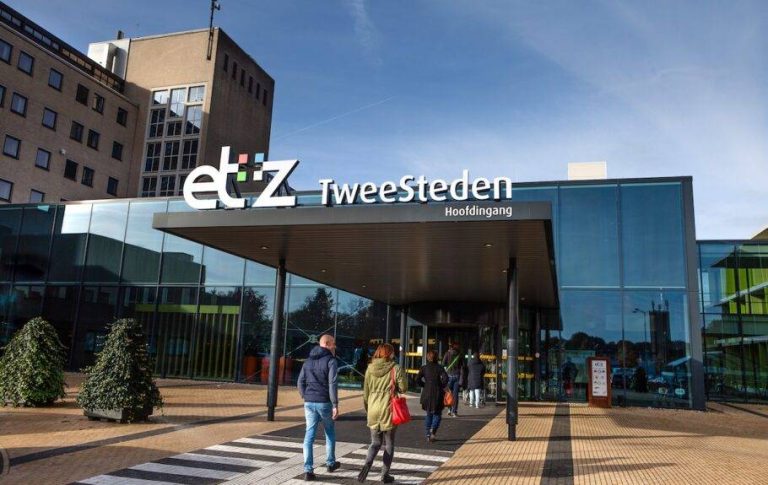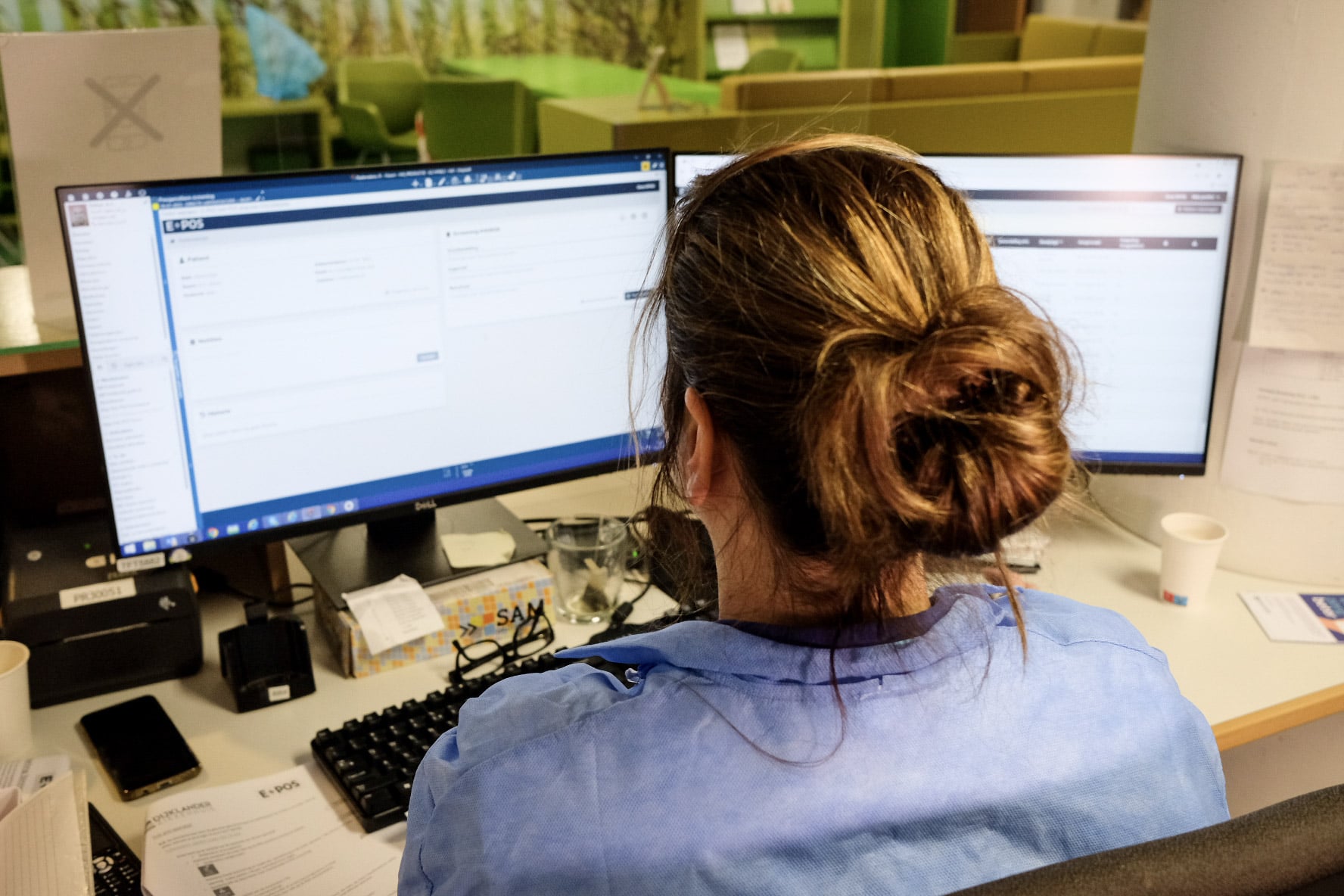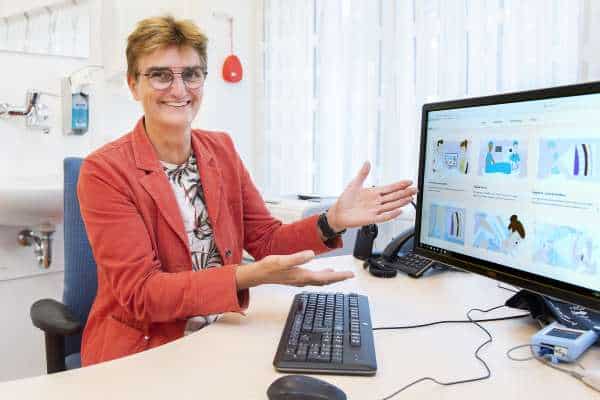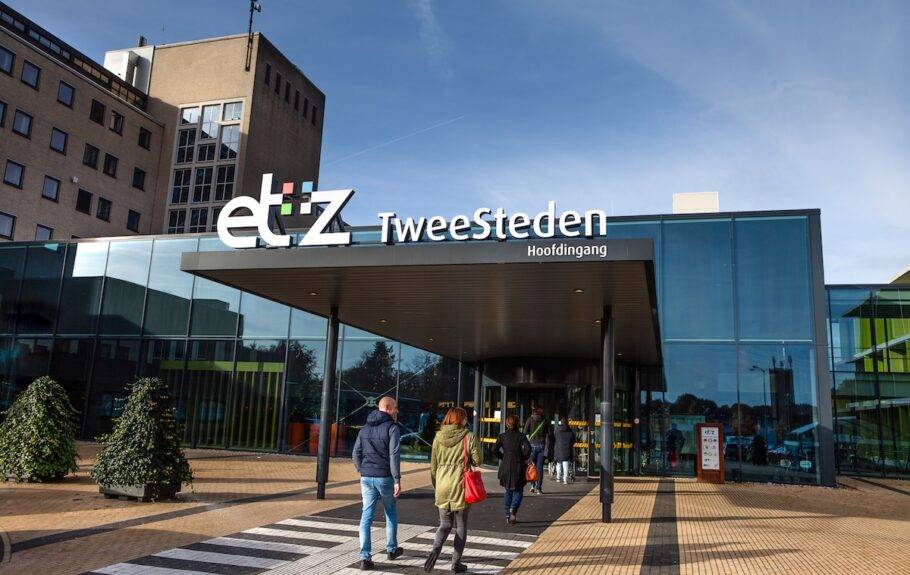The Elisabeth-Tweestede Hospital
Preparing patients digitally.

- Customer Name: Elisabeth-Tweesteden hospital
- Date: November 22, 2020
With E-POS prepare more effectively for surgery or research
Preparing patients digitally for an operation or examination. We do that in our hospital with E-POS. We started this as a trial last year. It has since become a standard procedure in the Department of Anesthesiology. One year later and more than 11,000 digitally screened patients further, Anesthesiologist Anne Marieken Wolter and Head of Operations Tessa Holzhaus- Fuhring would like to update you on E-POS.
E-POS
How healthy is a patient? An important question prior to an examination or surgery. Previously, patients came to the hospital to determine their health during the so-called preoperative screening. With E-POS , this is done with a digital questionnaire that a patient fills out at home. The E-POS system filters the answers and looks at how risky the surgery is. Based on that, we determine whether to have the patient come to the hospital prior to surgery, or to call the patient or whether the information from the questionnaire is sufficient.
Preparing digitally for an operation or examination: how risky is that? And does the human touch still exist?
'The patient always has a contact moment with the outpatient. And everyone can get an appointment the way they want. Even if we already have enough information with the questionnaire. So the human touch is definitely still there, although we are putting more effort into digital because it offers many advantages. As for the risk: the anesthesiologist always reviews the questionnaires himself to determine whether E-POS made the right assessment and what medication and/or anesthesia is needed. So we can always overrule E-POS ," Anne Marieken said.
One year E-POS what did it yield?
'We find that we can better separate healthy and less healthy patients and thus help them better, said Anne Marieken. 'That's like this: before, all patients came to the hospital prior to an operation or examination. We didn't know anything about the patient yet. Per screening, we charged about 20 minutes. But a relatively healthy patient who came for knee surgery was often ready within minutes. For the patient, an unnecessary hospital visit, and we could better use the time left over for a more vulnerable patient who had to undergo bowel surgery, for example. Tessa adds, 'E-POS provides us with more effective screening for both patients and ourselves. We can help more patients in less time and enable customization.'
How does that manifest itself in numbers?
Tessa: "80.9% of preoperative screenings last year were through E-POS. More than 11,000 patients went through the screening. Also in corona time, E-POS was a great tool to help patients remotely. Of course, our hospital also sees vulnerable patients. If you can help them remotely with this kind of initiative, that's only great. On the other hand, the corona situation perhaps does cloud the numbers a bit. Because corona measures meant there was less outpatient space and we physically saw fewer people than we actually wanted to. That is why we are conducting a patient satisfaction survey when the situation is completely back to normal. Because then the results will be fully representative.'
E-POS thus provides the hospital with good information. What about information to the patient?
Anne Marieken: 'E-POS offers the patient clear videos and animations explaining the examination or operation. Because of this we notice that the patient is well informed about what is going to happen and asks us more specific questions. Before, I was sometimes a bit irreverently 'ticking off a list', now there is more interaction. This makes conversations better and more personal.'
What do you expect from E-POS in the future?
'The personal will never completely disappear,' Tessa expects. 'But E-POS offers many advantages. For example, to fill in information together with your elderly mother at home over a cup of coffee for which you normally had to come to the hospital. Together with other eHealth developments, in the future we might also be able to arrange things with home care, GPs and laboratories remotely. Although I think we will reach the limit of what is possible and what is needed,' says Tessa. Anne Marieken: 'We want optimal provision of information to and from the patient. And apply the care to those who need it. For example, the 80-year-old patient who may only get one chance at a complex operation. We can make better use of that chance by E-POS . That motivates me to keep getting the most out of it. To keep making a quality improvement for that group in particular.




